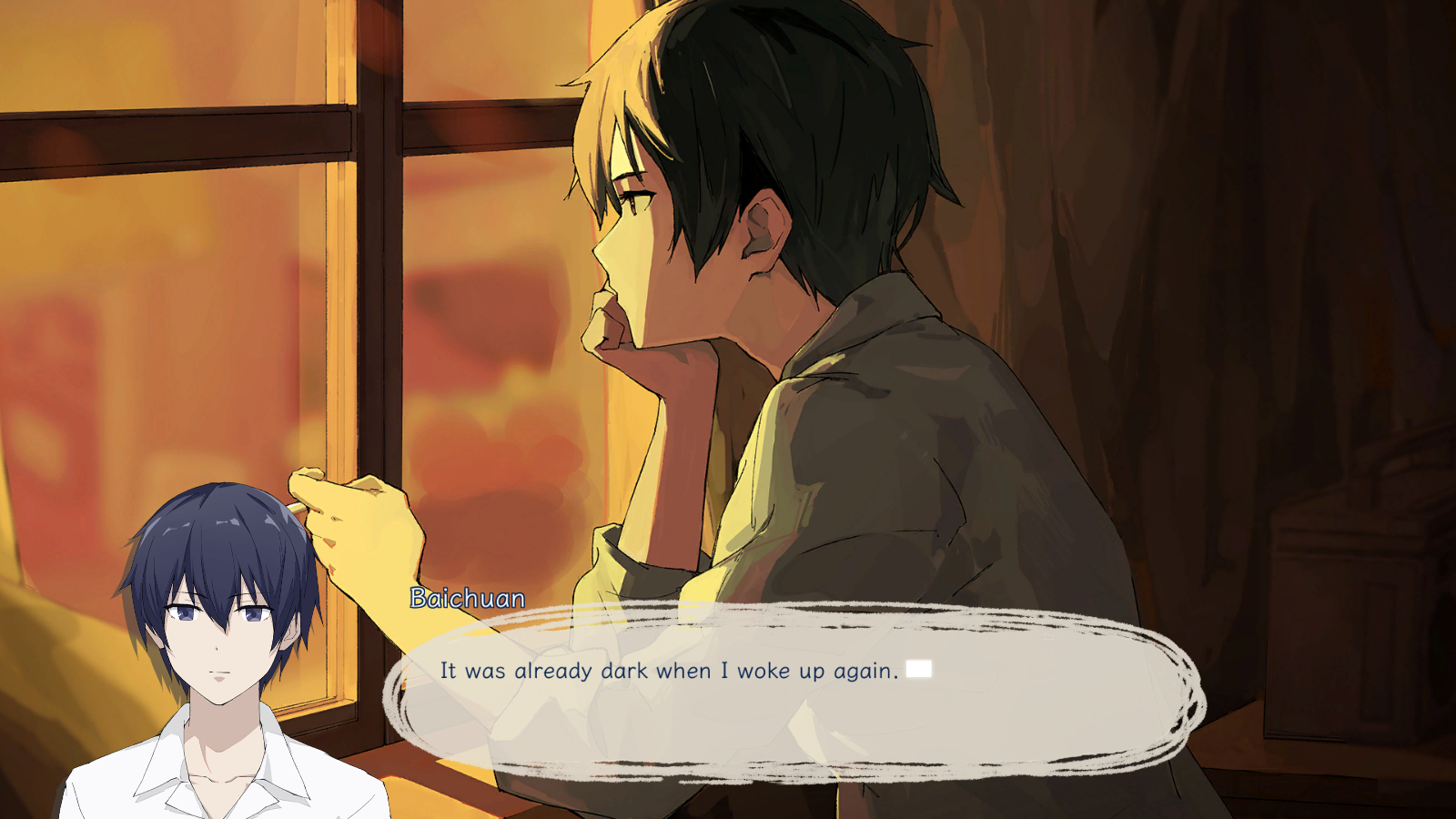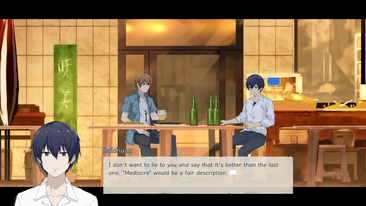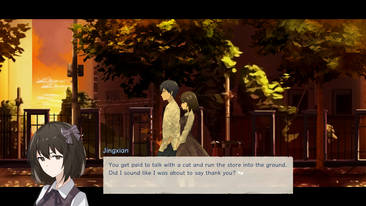Preview: Shanghai Summer
2024-01-09 by Mohamed Hassan
A promising visual novel with a change of scenery
Shanghai Summer is a PC mystery visual novel set in, well, obviously China's Shanghai, but that was actually enough to pique my curiosity. I'd seen enough of the overused locations like New York and Tokyo in games, and strolled through virtual replicas of their neighborhoods probably a million times by now. I wanted to visit some new place for a change.
I recently started investing time in the voices I never get to hear enough of, and found some cool gems from underrepresented ethnicities like Space for The Unbound, Venba, and A Memoir Blue. And now that I've tried Shanghai Summer's demo, I'm convinced that it has the potential to be a remarkable addition to the aforementioned games when it’s fully released.
What sets Shanghai Summer apart from many games and VNs for me is its portrayal of a contemporary China. A modern-day story set in China is not a prominent setting for a VN according to Vndb and there’s a few of those available in English translation (and look just as good). The game also focuses on the lives of ordinary people rather than martial artists or wuxia-inspired narratives, which felt more relatable to my humble and ordinary self and aligned with the desire I mentioned before for a new kind of cultural exchange experience of sorts.

Leave your room and change your destiny
In Shanghai Summer, you explore an in-game version of Shanghai in the year 2003 through the eyes of the amnesiac Baichuan.A young man who quickly realizes that he's living in a visual novel with all the quirks that come with that revelation. He meets a talking cat who gives him info dumps about parallel worlds and that his choices can affect his fate. He can read notes that are not from the same timeline or are not a product of the events he witnessed in his current timeline and all the nolan-esque stuff you could probably think of.
Baichuan has the power to jump between story fragments through what’s commonly known in VNs as a flowchart. The chart and the narrative possibilities it shows is somewhat simplistic and not what I would call Zero Escape's level of complexity. There are several bad endings you can achieve by sleeping through the day and not interacting with the characters and doing the tasks you're supposed to do. They all pretty much lead to the same CG or key moment landscape art of him contemplating his own introverted behavior and deciding to go back and make better choices. So in a way, the bad endings have some sort of a subtle narrative theme and invite the player to leave their room and actually interact with the world around them if they wish to reach the true ending of the game or find out about Baichuan’s true “reality”.

This sentiment of encouraging social interaction echoes throughout every corner of the VN. Players can move around unlike Kinetic visual novels, talk to people, interact with doors, sit in cafes and the like. The game rewards you for that as I’ll get to in a bit. Over the course of two in-game days, I got to know the extroverted Fengyi, who's chasing the dream of wanting to be an independent musician weirdly enough by borrowing money from Baichuan. The shy Jingxian who's clearly making advances on Baichuan with efforts that often end in vain. There’s also the enigmatic Ji Qiuyu, a key character in the story whom I actually got to control in one section and perceive the story from her perspective at times as well; a perspective that had more real and sad vibes than Baichuan’s cosy dream life.

Aesthetics, Bonds, and Retro Vibes
The Steam description mentions that the story will occur over the course of twelve days in total, and I'd be lying if I said that the foundation of the story gripped me and made me want to know more about the ten remaining days. Because I don't feel like I cared that much for any of the characters yet in the hour I spent with the demo. However, according to the journal Baichuan keeps around (which looks really cute and intimate from a UX/UI perspective), every character has some form of an upgradable bond or social link with Baichuan and they are all apparently hiding more than meets the eye and what the demo has shown.
There are important keywords in each conversation that are also recorded in your journal and you will use these keywords later on to progress in the story. Even though I wasn't really interested enough in the characters or what they had to say all the time, this structure helped me pay attention to the main points of each conversation. The side characters and interactive objects can also give you keywords so I felt a bit more compelled to play around and interact with objects and NPCs instead of just shooting for the next main story location.
What really left an impression though are the aesthetics. I love the VHS tape transitions between story fragments, and I love the way the character models walk and breathe. Everything in the town feels very retro and warm and personal. The font is also nice to look at and easy to read and the localization is almost perfect. The art and music have enough quality to them and brought back memories of my experience with Will: A Wonderful World, another really good Chinese VN. The dates in the bottom corner of each CG and how they reflect more than one timeline made these CGs more meaningful in my eyes as a tool to piece together the story fragments and not just fill my game album with eye candy images like other VNs do.
There are also collectibles in the form of cute, tiny octopuses that are modeled after nostalgic icons like Let's and Go and Zelda's Link, which also added to the unique retro personality of this game. I still haven't figured out who the “dancing octopus fighting the demonic overlord” is parodying, but it's been a while since a collectible made me stop and look at its description for more than a second at most and think about what it resembles and what it is trying to say.
Overall, Shanghai Summer definitely has some soul. It knows how to set the mood and keeps a moderate pace so that you don't get bored. The important objects and characters are always clearly visible on the screen, so it's not a chore to go through the events or figure out what to do. The game just needs to get its story right, and from all the hints I can't spoil, it seems it will be doing a good job. Shanghai Summer’s demo is currently free to try on Steam and the game is listed as coming soon with no confirmed release date.